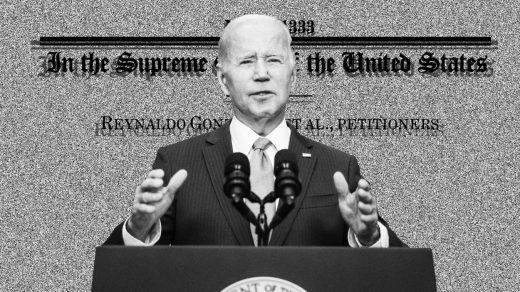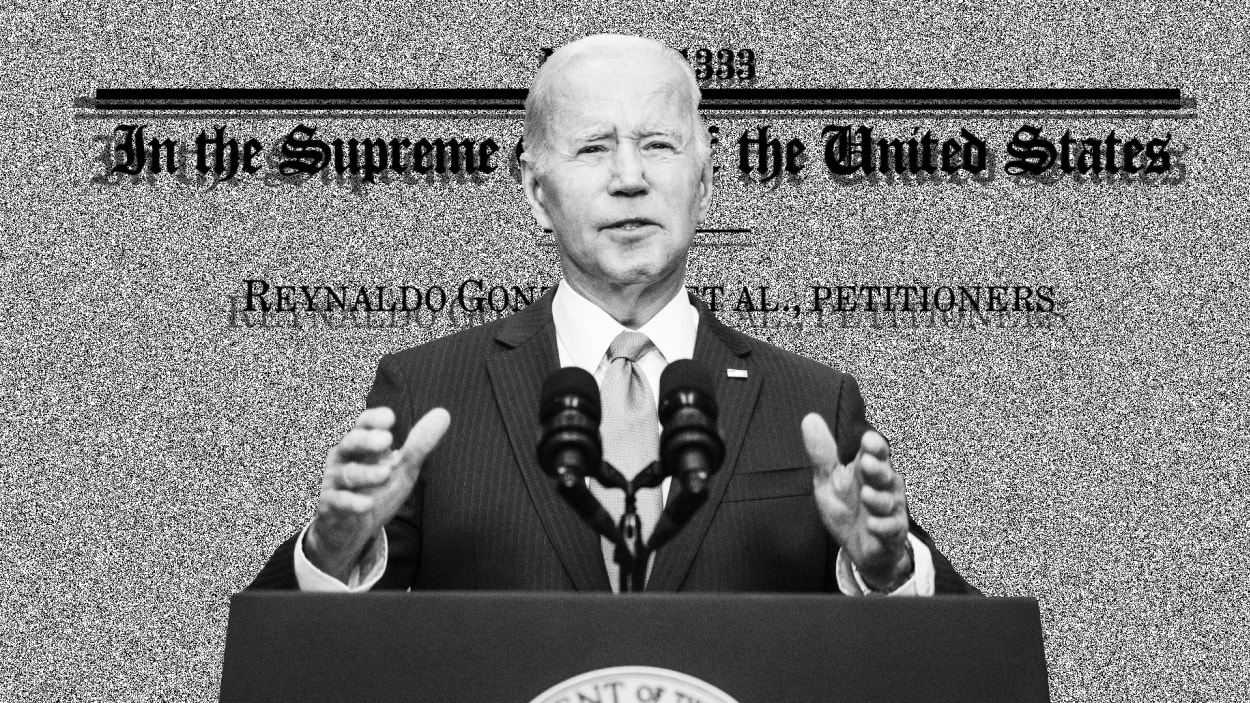The White House lines up against big tech in a pivotal Supreme Court case on Section 230
On Wednesday, the Biden administration filed a brief siding against the tech industry in an upcoming Supreme Court case, Gonzales v. Google, which will require the high court will weigh in on Section 230 of the Communications Decency Act for the first time. The case’s outcome could seriously impact what content tech platforms are willing to host, and how they use algorithms to suggest that content to users.
Section 230 was written to protect platforms from lawsuits related to content moderation decisions (i.e., decisions to host or remove a piece of user-created content). “No provider or user of an interactive computer service shall be treated as the publisher or speaker of any information provided by another information content provider,” the law reads.
At issue in Gonzales v. Google, which the court will hear in mid-February, is whether tech platforms act more like a “publisher or speaker” when they algorithmically suggest content, and thus drift outside the legal safe harbor provided in Section 230.
Plaintiffs in Gonzales argue that Google’s YouTube acts more like a publisher or speaker when it selectively recommends specific content to specific users, and the Biden administration’s solicitor general agrees.
The case was filed by the family of an American woman, Nohemi Gonzales, who was killed in a Paris bistro in an ISIS attack in 2015. Her family holds Google partly responsible because its YouTube platform hosted and suggested ISIS videos that helped recruit and radicalize some of the people who carried out the violence.
Plaintiffs also argue that Google violated the Antiterrorism Act of 1990, and can’t be protected by Section 230 because its algorithms actively recommended videos created by a foreign terrorist organization. That’s where the White House’s interest in the case comes in. The solicitor general’s main argument in the amicus brief is that Section 230 shouldn’t be interpreted to give platforms like YouTube legal cover for aiding and abetting a foreign adversary like ISIS.
But a narrower reading of 230’s protections could have real effects on how tech platforms treat all kinds of content. Tech industry groups say that platforms would necessarily become more conservative in the types of content they’re willing to host. Fearing legal repercussions, they may be less likely to host controversial or offensive content.
Some of that content might be harmful, like the ISIS videos, but some of it might be very useful. YouTube, for example, might be far less likely to host and recommend reproductive health information to people who really need it, says the progressive tech industry group Chamber of Progress.
And the effects might extend farther than private tech companies. Red states may redouble their efforts to ban such “controversial” content if they believe it no longer sits within a safe harbor. “It’ll be carved out of Section 230, which has been a big roadblock to states banning the content,” says Chamber of Progress’s Chris MacKenzie. “This would create a pathway for them to do that.”
The scope of 230’s protections has already been chipped away by laws passed by Congress, and by lower court decisions. Now a conservative Supreme Court may take its turn with the whittling knife.
The White House’s position opposite big tech in the matter shouldn’t come as too big a surprise. The administration has publicly opposed the industry in both word and action a number of times since Biden took office. The president, for example, has expressed his support for two antitrust bills (stuck) in Congress that would restrict the monopolistic and self-preferential behavior of tech companies on critical platforms such as e-commerce markets and app stores. Biden also named two high-profile tech skeptics to high positions within his administration—Tim Wu as the White House’s senior tech adviser, and Lina Khan to head the Federal Trade Commission.
(30)



